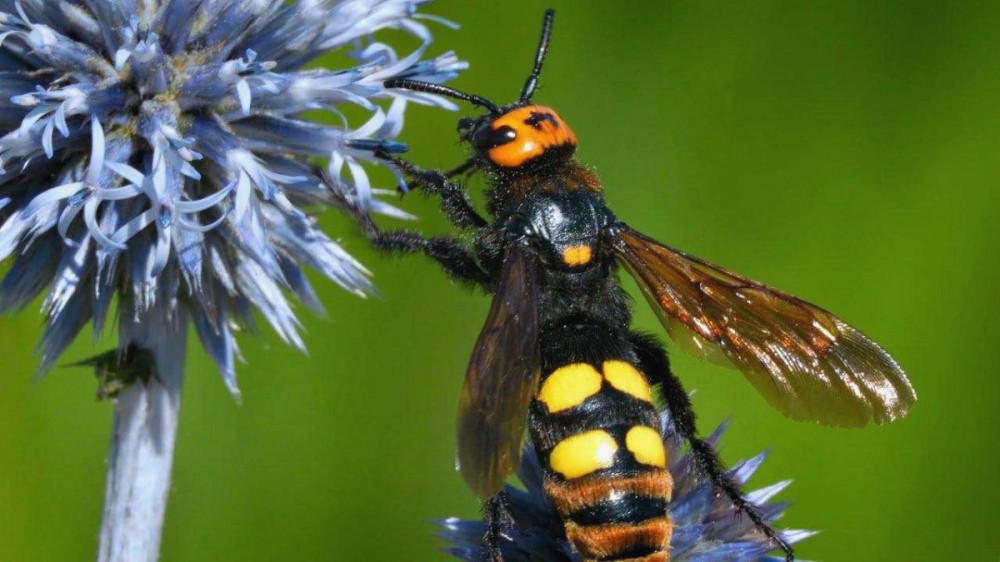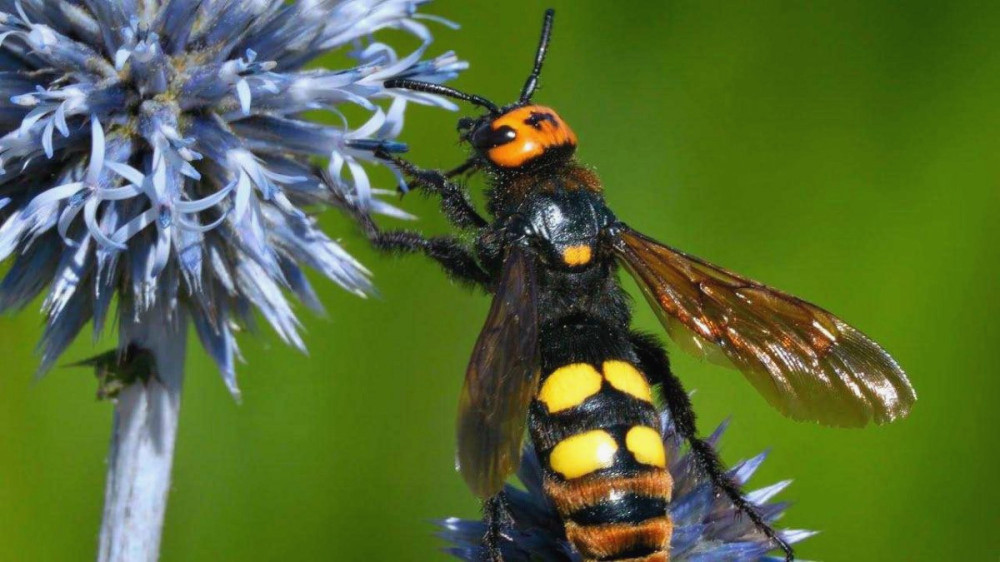The Unique Wasp of Tuzly Lagoons
In the National Nature Park “Tuzly Lagoons” located in Odesa, one can find a remarkable and rare wasp known as the giant scolid (Megascolia maculata). This fascinating insect was recently photographed on rose flowers, as reported by Dr. Ivan Rusev, a staff member of the park.
Life and Behavior of the Rare Wasp
According to Dr. Ivan Rusev, the giant scolid leads a dual lifestyle: in its larval phase, it acts as a parasite, while in its adult phase (imago), it becomes a phytophagous insect, feeding on plant matter. All scolids are diurnal animals. They spend the night buried under foliage and emerge with the first rays of sunlight to feed on blooming plants. Due to their short proboscis, they can only access nectar from flowers with shallow corollas, such as aster and umbelliferous plants.
Despite its intimidating appearance, this rare wasp poses little threat to humans. Its venom is significantly weaker than that of common wasps. The scolid uses its venom not for nest protection but for paralyzing the host larva (for instance, a rhinoceros beetle), onto which it lays its egg. The egg overwinters in the soil and transforms into a pupa come spring.








